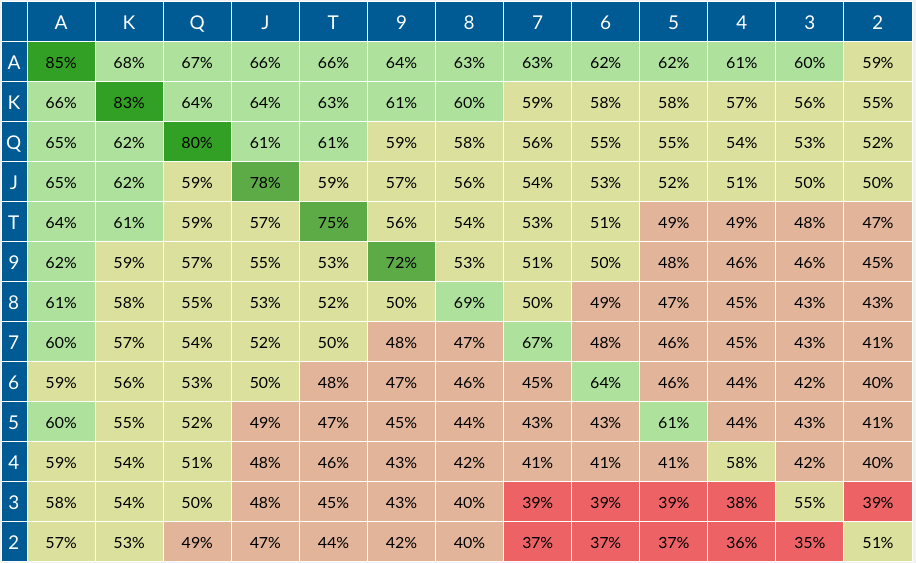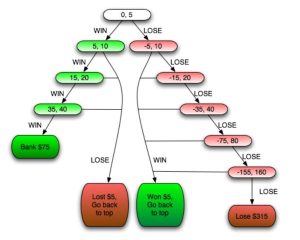
Heads-up poker is a fascinating form of the game that involves two players facing off against each other. Unlike traditional full-ring games, heads-up poker requires a different set of skills and strategies to be successful. In this article, we will explore some of the key strategies that can help you master heads-up poker and improve your chances of winning.
Understanding the Dynamics of Heads-Up Poker
Heads-up poker is all about adjusting your play based on the dynamics of the game. Unlike in a full-ring game, where you have to wait for premium hands to play, heads-up poker requires a more aggressive approach. Since there are only two players, the range of hands that are considered strong is much wider.
When playing heads-up, it is important to pay close attention to your opponent’s tendencies, as well as your own. Understanding your opponent’s playing style and adjusting your strategy accordingly is crucial for success. One key aspect of heads-up play is the ability to bluff effectively. With fewer players at the table, bluffing becomes a more powerful tool in your arsenal.
Knowing When to Attack and Defend
Heads-up poker is characterized by a constant battle between attacking and defending. Knowing when to switch between these two modes is crucial. When you have a strong hand, you should be aggressive and try to extract maximum value from your opponent. On the other hand, when you have a weaker hand, it is important to defend and minimize your losses.
Being able to read your opponent’s hand strength is a key skill in heads-up play. Look for betting patterns, timing tells, and any other signs that can help you accurately assess their holdings. This information will enable you to make informed decisions about when to attack and when to defend.
Adapting to Different Playing Styles
Every player has their own unique playing style, and being able to adapt to different styles is crucial in heads-up poker. Some opponents may be more aggressive, while others may be more passive and cautious. By observing their tendencies and adjusting your strategy accordingly, you can gain a significant edge.
If your opponent is playing aggressively and raising frequently, you can employ a more conservative approach, calling or re-raising with premium hands. On the other hand, if your opponent is playing passively and calling most bets, you can become more aggressive and bluff more often.
Using Position to Your Advantage
In heads-up poker, position plays a crucial role in determining the outcome of hands. Being in position means you act last, which gives you a significant advantage. When you have position, you have more information about your opponent’s actions, allowing you to make better decisions.
When playing out of position, it is important to be more cautious and selective with your hands. Focus on playing strong hands and avoid getting involved in marginal situations. Conversely, when in position, you can widen your range and put more pressure on your opponent with well-timed bets and raises.
Continually Refining Your Strategy
Like any form of poker, mastering heads-up play requires practice and continuous improvement. Analyzing your own play and learning from your mistakes is essential to refining your strategy. Keeping track of your results and studying your opponents’ playing styles and tendencies can help you identify areas where you can make adjustments.
Seeking feedback from other skilled heads-up players or joining online forums dedicated to heads-up poker can also accelerate your learning curve. The more you play and actively work on improving your skills, the better you will become at reading opponents, making accurate decisions, and ultimately, winning more consistently.
Conclusion
Mastering heads-up poker is a challenging but rewarding endeavor. Understanding the dynamics of the game, knowing when to attack and defend, adapting to different playing styles, utilizing position to your advantage, and continually refining your strategy are all key elements that can help you become a formidable heads-up player.
With practice, dedication, and a solid understanding of these strategies, you can increase your chances of success in heads-up poker and outmaneuver your opponents at the table.

